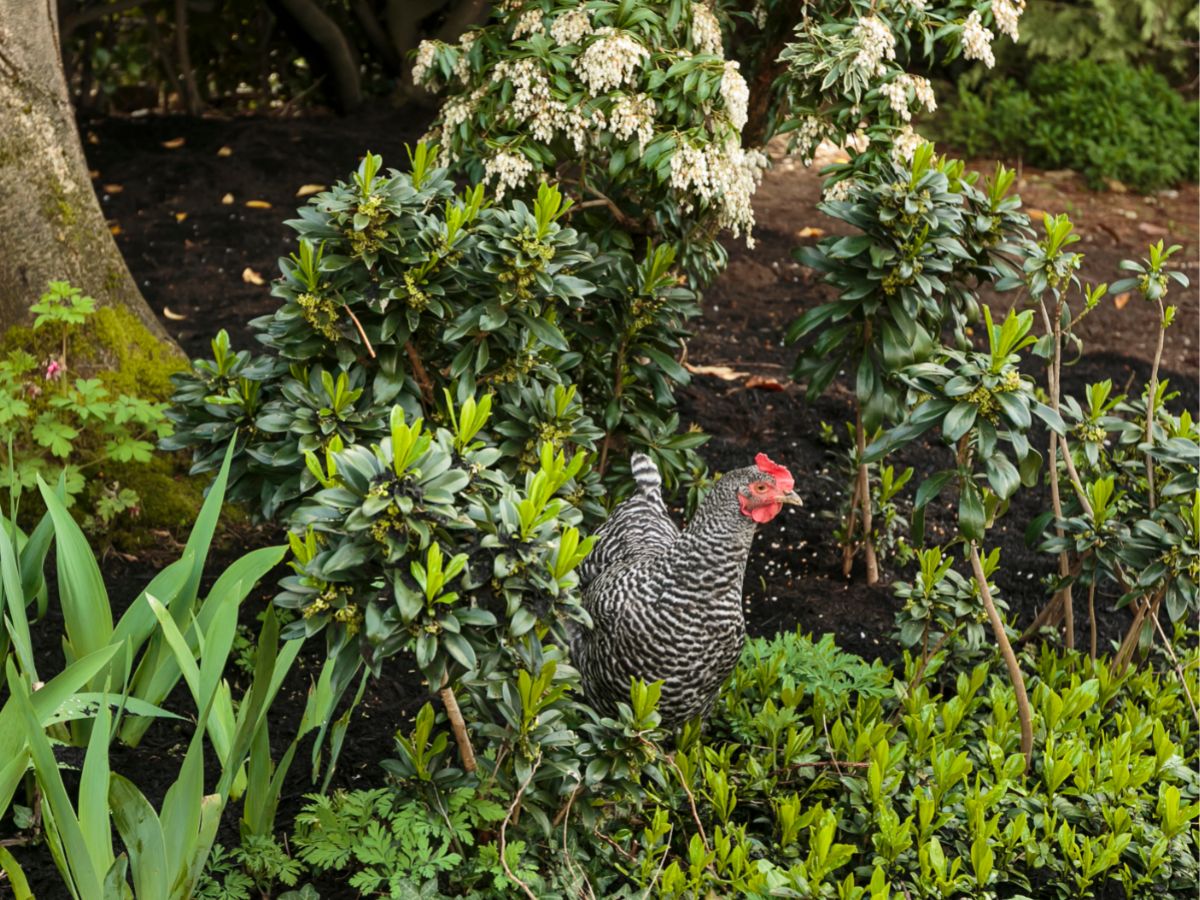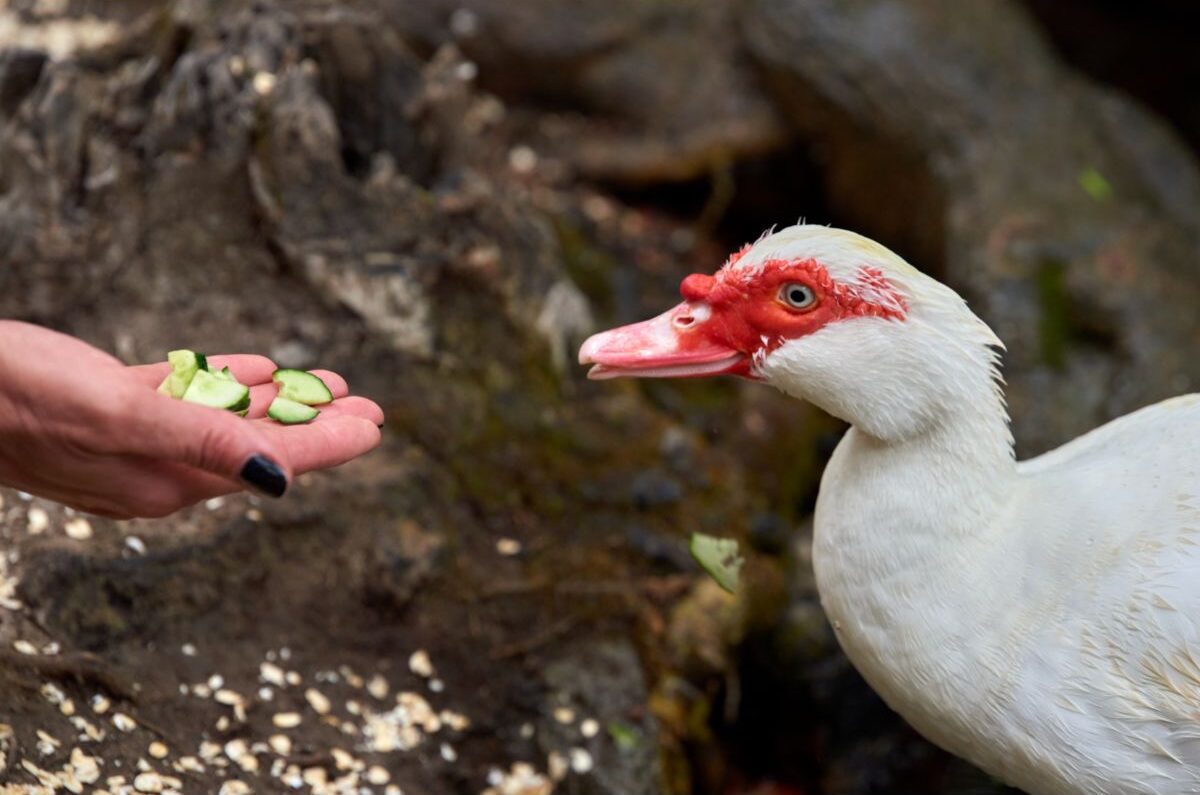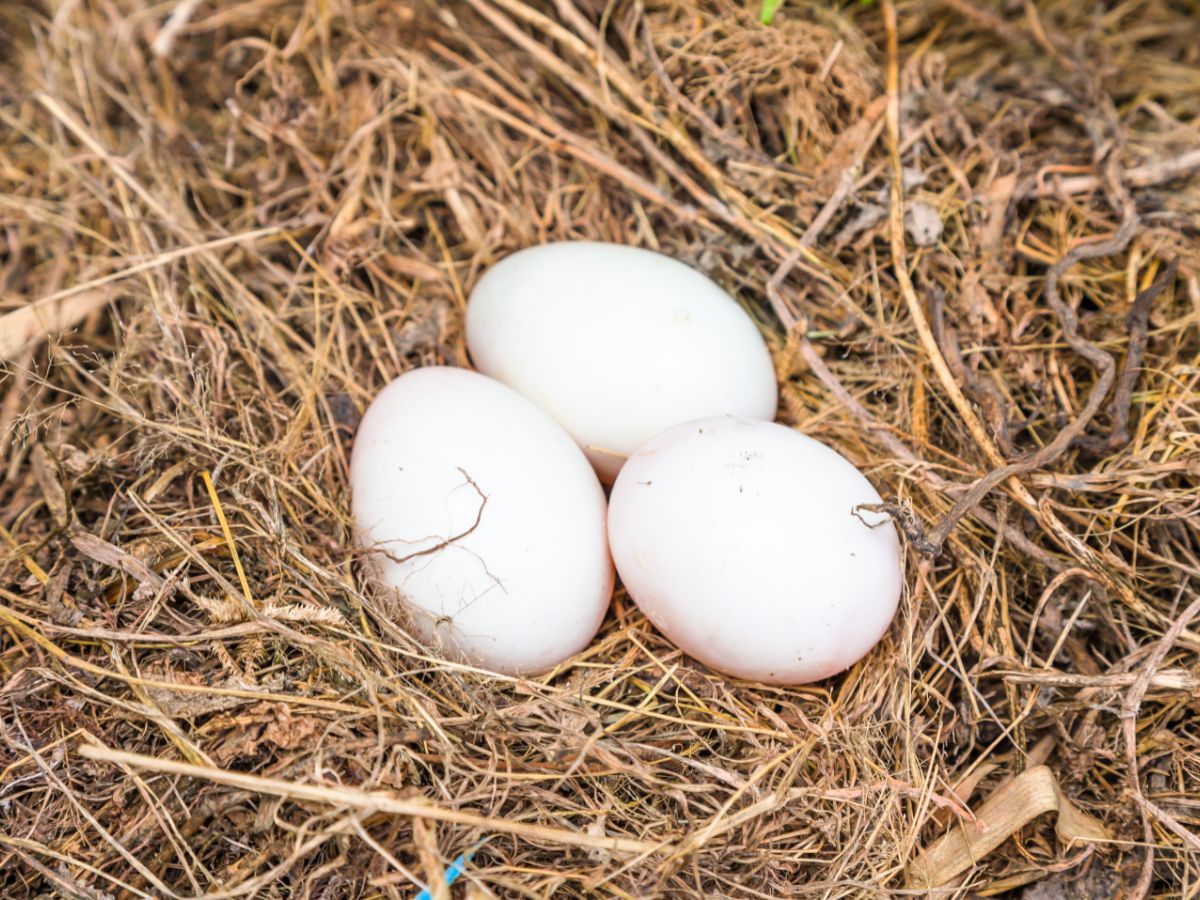When you see the massive chicken batteries on, it seems very cruel to the bigger chicken farms; it is a good motivation to try and improve the lot of your flock of chickens. The high volume methods are necessary when you consider that in 2017 each American consumed 122.75 pounds, meaning that almost 20 million tons of chicken meat are consumed annually in America.
A free-roaming chicken seems to have a better lifestyle than those kept in a coop. While the birds will be healthier, eat less chicken feed, and appear more active and healthier, they will generally produce fewer eggs, have less meat, and be subject to the predators in the area.
From a human perspective, a chicken that does not live in a coop seems happier. It may not be strictly true because the production values will reduce, they will be at the mercy of predators and temperature changes, and they will also be adversely affected by the natural sunlight.
Contents
The Pros And Cons Of Free-Roaming Chickens
The pros and cons of free roaming chickens are.
The Pros of Free-Roaming Chickens
There are several advantages to not having your chickens stuck in a chicken coop, including the following.
- They eat less feed.
- Have less need for grit.
- They provide insect control.
- They control some other pests.
- They are more active and healthier.
The Cons Of Free-Roaming Chickens
Unfortunately, it’s not all good news; otherwise, the big chicken producers would have free-range chickens. The cons of free-roaming chickens are.
- They have lower production rates.
- They have higher mortality rates.
- They required daily egg hunting sessions.
- They will eat some of the garden plants.
- They will make a mess of landscaped areas.
- They make manure – everywhere!
- They are noisy.
Free-Roaming Chickens Eat Less Feed
Free-range birds will spend much of the day savaging for food, including grass, bugs, and small critters.
The only reason you need to supplement their food is to ensure that they are getting the correct proportion of Protein, Minerals, Fat, and Carbohydrates (Fiber)
Chickens are creatures of habit, and if you establish a morning and evening feeding time, they will be there waiting for you.
Free-Roaming Chickens Have Less Need For Grit
While the chickens roam around, they up tiny stones, pebbles, and sand which benefits their digestion by breaking down the food they consume during the day.
It removes the need for you to buy store-bought grit.
Free-Roaming Chickens Provide Insect Control
Chickens are a natural insect control and are always keen to eat the insects from under a rock or hidden hidey-hole.
If you have horses or cows, they will happily spend hours poking through them, looking for the favorite delicacy. One of the wonderful benefits of having free-range chickens is that they reduce the number of fly larvae and positively impact the fly population.
If you add ducks into the mix, you have a great combination where the chickens eat the fly larvae, and the ducks catch the airborne flies incredibly effectively.
Free-Roaming Chickens Control Of Other Pests
Chickens are great fun to watch, particularly as they try to act like predators.
During the day, they actively hunt lesser creatures than themselves, including field mice and even small snakes.
Having chickens does not rid your house of these pests, particularly as the chickens do not operate at night (when they are essentially blind); however, they enjoy doing their part during the daytime hunt.
Free-Roaming Chickens Are More Active And Healthier
Free-range chickens live much closer to a natural existence than birds raised in a coop.
The exercise does them good, and not being restricted into a close coop with other, sometimes sick, birds means they stay healthier.
For the chicken farmer, it is easier to identify and treat one or two sick birds and quarantine them, then watch in desperation as the whole flock slowly becomes sicker.
Free-Roaming Chickens Require Less Space
If chickens are confined to a coop, they need a minimum space of four square feet per bird; therefore, if you have ten birds, you need a coop with forty square feet of space.
Free-ranging the chickens means you only need coop space for the few, which may be roosting (to avoid predators), laying eggs, eating feed, and sleeping.
It massively reduces the space requirements.
Free-Roaming Chickens Have Lower Production Rates
Production number will be down with free roaming chickens compared to this maintained in a coop.
Because more energy is expended by a free-roaming chicken than one kept in a coop, their feed requirements are higher, but these are not always realized.
The consequence is that the chickens have less energy available to produce eggs or meat, which results in a lower egg and, where applicable, a lower meat yield as well,
Because the chickens have no specific place to hatch the eggs, it involves a daily hunt to find the most recent offerings. Some eggs may not be found, and the net result is that this also factors into lower egg production.
Free-Roaming Chickens Have Higher Mortality Rates
Free roaming chickens do not always thrive in the same way that their cooped cousins do.
Light Has A Significant Impact On Chickens
It is impossible to control a free-roaming chicken’s environment in the same way it can be done in a coop.
Chicken mortality is significantly affected by temperature changes. Studies have also shown that the difference in light frequencies between natural and direct sunlight negatively impacts egg production.
Lighting can be controlled in a coop but not outside for the free-roaming chickens. If the chicken farmer can only rely on sunlight during daytime hours, there will be fewer hours of light compared to darkness, which has an immediate impact on egg production rates.
Eating Harmful Stuff
When the chickens are free-roaming, you have no control over what they eat, including garden poisons such as weed killer or fertilizer.
If you have free-roaming chickens, application of these substances has to be strictly controlled.
Predators Enjoy Free-Roaming Chickens
The free-roaming chicken is easy prey for a hungry predator, and depending on where in the world you live, they are easy prey for.
- Raccoons
- Opossum
- Weasels
- Fox
- Coyotes
- Bears
- Monkeys
- Some breeds of snakes
- Birds of prey, including Eagles and Hawkes
- And many more.
In some instances, it will be impossible to keep your chickens free roaming outside the protection of a coop.
Free-Roaming Chickens Make Manure
The natural food cycle occurs with all living creatures, and chickens seem to be blessed with more than most.
Chicken poop seems to have an incredible ability to be under a human being’s foot, especially if that person is not wearing any shoes!
Conclusion
Farming chickens on a free-roaming basis makes for an interesting dichotomy. On the one hand, it seems to be the better lifestyle for them; however, under the controlled conditions of a coop, they produce more, higher quality eggs.
Raising your chickens in a coop is the only viable method available if you are a professional chicken farmer. On the other hand, if you are less worried about production values and yields, allowing the chickens to free roam is a better lifestyle for chickens.




